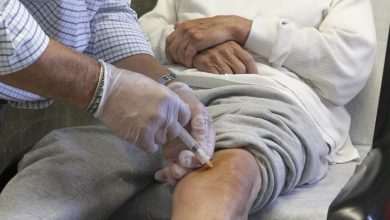
Introduction to Day Treatment Programs
Day treatment programs are pivotal in bridging the gap between inpatient care and conventional outpatient therapy. By offering a structured yet flexible approach, these programs enable individuals to pursue a path of recovery while maintaining engagement in their daily lives. This setup provides critical mental health support and respects personal autonomy, allowing the patients to apply therapeutic insights in real-life settings.
The flexibility of day treatment programs allows participants to receive tailored care that addresses their unique needs, which is why these programs are becoming increasingly popular among those managing varying mental health challenges. They combine the benefits of intensive therapy with the accessibility of outpatient services, making recovery more attainable and less disruptive to daily life.
How Day Treatment Differs From Other Therapies
Day treatment programs offer a distinctive blend of the benefits seen in inpatient and outpatient therapies. Unlike residential treatment, which requires an individual to reside at a treatment facility, day treatment allows one to maintain their routine outside the therapy sessions, such as attending work or school. For instance, programs like PHP in Boulder, Colorado, deliver comprehensive frameworks that accommodate those requiring intensive therapy without the full-time commitment of inpatient care. This structure provides essential therapeutic support while ensuring minimal personal responsibilities and lifestyle disruption. Furthermore, day treatments are often highly individualized, with programs designed to meet specific individual and clinical needs. This personalized approach contrasts with traditional outpatient therapy, which is usually generalized and has less frequent care.
Advantages of Day Treatment in Mental Health Recovery
The personalized care inherent in day treatment programs significantly enhances recovery. Participants benefit from a hybrid approach that combines intensive therapeutic intervention with the opportunity to practice everyday life skills. A significant advantage of day treatment is fostering peer support—participants share experiences and offer mutual encouragement, which has been shown to positively impact recovery outcomes by enhancing accountability and empathy among peers. Moreover, the collaborative strategies used in these programs ensure that care plans are holistic and inclusive of patient input, which can increase engagement and motivation.
Real-Life Success Stories
Success stories from day treatment programs are both inspiring and informative. Numerous individuals attribute significant strides in their recovery journey to the support and structure these programs provide. A report from Mental Health America highlights cases in which individuals have developed profound improvements in their emotional regulation, showcasing the potential impact such programs can have. Participants gain practical coping mechanisms and often report an enriched quality of life and a renewed ability to handle daily stressors, underscoring the programs’ effectiveness in fostering long-term stability and well-being.
Who Can Benefit From Day Treatment?
Day treatment programs serve diverse individuals who can benefit from their structured, intensive support without the constraints of full-time residential care. They are especially beneficial for those transitioning from inpatient care, offering a step-down level of support that bridges to community-based services. Adolescents, who may find full-time inpatient facilities disruptive to their social and educational development, often benefit from the balance day programs provide. Similarly, adults juggling work commitments or family responsibilities appreciate the opportunity to manage their recovery while fulfilling other aspects of their lives. For seniors, day programs provide a supportive environment that accommodates age-specific challenges and enhances social interaction.
Typical Components of Day Treatment Programs
The typical day treatment program comprises various therapeutic activities that promote holistic wellness. Core components often include individual therapy sessions, group counseling, and workshops on skill-building. The aim is to equip participants with practical skills to apply to everyday scenarios, strengthening their coping mechanisms and resilience. Emphasis is also placed on mindfulness and stress-reduction techniques, which are crucial for managing symptoms of anxiety and depression. This comprehensive approach ensures that participants are addressing their mental health issues and developing skills needed for everyday success.
Challenges and Considerations
While the advantages of day treatment programs are clear, prospective participants must consider the challenges. Accessibility can be an issue for those living in remote areas or with limited transportation options, potentially limiting their ability to participate regularly. Cost is another significant factor; although programs can be less expensive than full-time inpatient care, they might still pose financial strain. Therefore, individuals must evaluate whether the benefits align with their personal needs and logistical constraints to make informed decisions about their mental health care options.
Future of Day Treatment in Mental Health Care
The future of day treatment looks promising as the mental health care field continues to evolve toward more personalized and accessible solutions. Innovations in technology and therapeutic practices are likely to enhance these programs further. As indicated in a study by Psychiatric News, integrating digital health tools, such as telehealth and online support networks, could revolutionize accessibility and engagement in day treatment programs. These advancements will likely make mental health care more adaptable and responsive to individual needs, paving the way for more effective and widely available treatment options.



